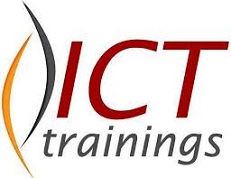Are you setting foot into the world of digital marketing and feeling overwhelmed by the seemingly endless possibilities? Fear not; this step-by-step guide is your compass through the digital landscape, designed especially for beginners. While self-proclaimed digital marketing experts may dazzle with their advanced strategies, this guide takes you back to the basics, providing you with practical knowledge to kickstart your digital marketing journey, whether you’re an online business owner or a local retailer.
The Foundation of Digital Marketing
Digital marketing is an intricate blend of art and science, using online tools and platforms to connect with your audience, boost engagement, and drive sales. As a beginner, you won’t be expected to code a website or master the nuances of Google display ads immediately. Instead, you can start by laying a solid foundation for future digital marketing efforts.
Here are some fundamental strategies you’ll encounter as you embark on your digital marketing journey:
Creating a Website
Your digital storefront is your website. It’s where potential customers will land, so make sure it’s user-friendly and visually appealing.
Building an Email List
Email marketing remains a potent tool. Collecting emails from interested visitors can help you establish a direct line of communication with potential customers.
Optimizing for Search Engines
Learning the basics of search engine optimization (SEO) is crucial. It helps your website appear in search engine results when people look for products or services like yours.
Exploring Social Media
Platforms like Facebook, LinkedIn, and Instagram offer opportunities to connect with your audience and showcase your brand.
Targeting Local Audiences
If your business caters to a local market, consider location-based targeting to reach nearby customers effectively.
This list is not exhaustive, but it gives you an initial glimpse of the diverse opportunities digital marketing offers.
Is Digital Marketing a Walk in the Park?
The answer, paradoxically, is both yes and no. At its core, digital marketing is about forging meaningful connections between people and brands. In theory, building a website, creating appealing content, and watching customers flock in seems straightforward.
Yet, the reality is more intricate. Digital marketing involves a complex interplay between marketers and tech experts who develop tools and services to streamline these connections. While setting up an essential website is within reach for most, optimizing it, crafting compelling content, and driving traffic require time, skill, and finesse.
Digital marketing encompasses various strategies and channels, each demanding a unique approach. It’s not just about launching a website and hoping for the best; it’s about refining your tactics to attract and retain customers effectively.
The Six Pillars of Digital Marketing
Digital marketing has several facets, but six pillars serve as its foundation:
Content Marketing
Search engines crave fresh, relevant, and engaging content. Content marketing involves creating articles, product descriptions, and educational material that captivate your audience.
Search Engine Optimization (SEO)
SEO optimizes your website for search engines. Both on-site and off-site SEO tactics are essential to enhance your online visibility.
Social Media Marketing (SMM)
Social media offers paid and organic marketing opportunities. Organic efforts involve educating and engaging your audience and fostering genuine connections.
Search Engine Marketing (SEM)
SEM involves placing paid advertisements on search engines like Google or Bing to appear at the top of search results.
Paid Ads
Platforms like Google Ads and Facebook Ads allow you to reach a broader audience at a lower cost than traditional advertising.
Email Marketing
Email campaigns remain a powerful tool for digital marketing. Building a high-quality email list is essential for effective campaigns.
The 5 Ps of Digital Marketing
To succeed in digital marketing, remember the five Ps:
Product: Understand your audience’s needs to tailor your products or services effectively.
Price: Develop a pricing strategy that suits the market and evolves.
Promotion: Consider various promotional methods, including influencer collaborations, discounts, and creative alternatives.
Place: In the digital age, your website and mobile applications are your place.
People: Identify your target audience and create buyer personas to guide your marketing strategy.
Understanding how these Ps intersect requires dedicated learning. Consider enrolling in a digital marketing course to expedite your education.
Digital vs. Traditional Marketing
Digital and traditional marketing share a common goal—connecting with customers—but their methods diverge:
Audience: Digital marketing targets global audiences and specific demographics, while traditional marketing focuses on local audiences reached through broadcast or print media.
Content Delivery: Digital marketing leverages multiple online channels, such as blog posts, videos, emails, and social media. Traditional marketing relies on older-style channels like radio, television, and print.
Interaction: Digital marketing allows direct and frequent interaction with your audience through forums, social media, and interactive content. Traditional marketing typically involves physical materials like flyers and brochures.
Events: Digital marketing has popularized online events, while traditional marketing often centers on in-person events to build brand awareness.
Tips for Beginners
As a novice in the digital marketing arena, don’t be intimidated. Here are some tips to ease your entry into this exciting realm:
Master Brand Awareness
Building brand recognition is critical. Consistency across channels helps customers instantly identify your brand.
Embrace SEO
Start by understanding keywords and gradually delve into link-building strategies to enhance your website’s visibility.
Explore Your Brand’s Online Potential
Digital marketing offers myriad opportunities, from webinars to thought leadership. Discover the potential and harness it strategically.
Know Your Customers
Conduct market research, gather feedback, and create buyer personas to tailor your marketing strategy effectively.
Excel in Social Media
Establish a strong presence on social media platforms. Mix informative, educational, and entertaining content to engage your audience effectively.
In the dynamic world of digital marketing, your journey as a beginner will be filled with learning experiences and discoveries. Keep moving forward, one step at a time, and soon you’ll be confidently navigating the digital marketing universe, driving your brand toward success.

